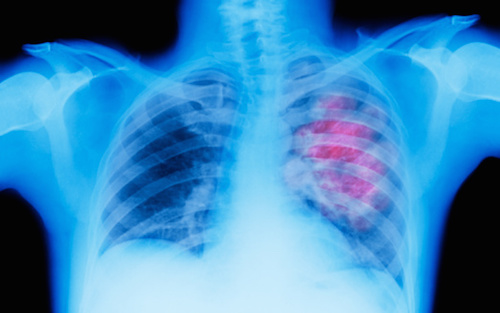
In a clinical validation study, Veracyte’s Percepta Nasal Swab Test determined lung cancer risk with high accuracy, among people who currently smoke or have previously smoked and have lung nodules.
The findings suggest the novel, non-invasive, genomic test can help physicians better decide next steps for these patients. Low-risk patients could potentially avoid unnecessary invasive procedures while treatment would be accelerated for those at high risk.
The Percepta Nasal Swab test was developed with RNA whole-transcriptome sequencing and machine-learning technology. It evaluates genomic changes associated with lung cancer that can be found in epithelial cells in the nasal passages of current and former smokers.
The study was published in CHEST and the first author is Carla Lamb, MD, of the Division of Pulmonary and Critical Care, Lahey Hospital and Medical Center.
Lung cancer is the leading cause of cancer death worldwide. Lung nodules are an early indicator of disease and are typically detected using computed tomography (CT) scans. In the United States, approximately 15 million people are eligible for annual lung cancer CT screening based on their smoking history and other factors. The nodules are also sometimes detected incidentally, during scans for other conditions.
“Physicians need an objective, accurate tool to help guide care for patients when a lung nodule is found on a CT scan,” said Bill Bulman, MD, Veracyte’s medical director for Pulmonology and an author on the CHEST manuscript. “Our findings reinforce the ability of the Percepta Nasal Swab test to improve risk assessment of lung nodules and help avoid unnecessary diagnostic procedures for those at low risk of cancer while supporting timely diagnosis and treatment for those with high risk of cancer.”
Percepta Nasal Swab is a non-invasive, genomic test that can be done in a physician’s office. The test reports whether a patient has a high-, moderate-, or low-risk for lung cancer, helping physicians objectively determine which patients with lung nodules to work up for cancer and which patients to simply monitor with imaging.
For the CHEST study, researchers trained the test on a cohort of 1,120 patients with lung nodules that were either malignant or benign. They then evaluated nasal samples from an independent cohort of 312 eligible patients who were followed for at least 12 months or until a final diagnosis of benign or malignant was determined.
Percepta was highly accurate in identifying patients with low-risk nodules (97% sensitivity, with 40% specificity), which would avoid unnecessary invasive procedures in patients with benign nodules, with a very small risk of missing a cancer.
Similarly, researchers found that the test is highly accurate in identifying patients with high-risk nodules (92% specificity, with 57% sensitivity). This high specificity provides a positive predictive value, or PPV, of 70% in a population with a 25% cancer prevalence.
“We believe our Percepta Nasal Swab test can be paradigm-changing in the evaluation of lung cancer risk among patients with lung nodules,” said Bulman. “By helping to guide next steps for physicians and their patients, we aim to help make lung nodule evaluation, including through lung cancer screening programs, more efficient and effective.”
Publication of the clinical validation study is a key step toward securing payer reimbursement for the test. The company is also currently conducting a national prospective clinical utility study, known as NIGHTINGALE.













